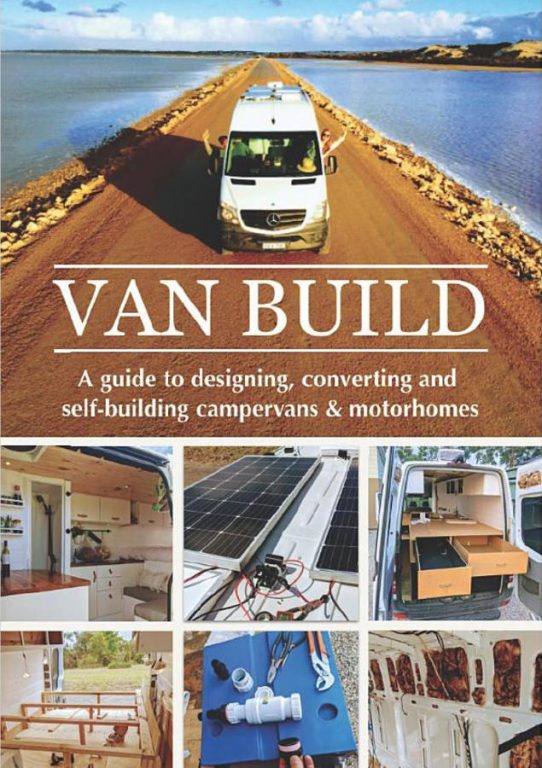It is important to prepare your campervan or motorhome for the winter months. This is especially true if you live in an area where you receive frost or snow, as damage can quickly happen to an unprepared vehicle. This guide covers preparing the living area of your vehicle, and mechanical tips as well.
Living Area
- Drain the water from ALL water storage tanks, AND pipes. This is vital as any water will become stale, and if it freezes it will expand and split the tank/and or pipes. Ideally store removable tanks indoors, and be sure to blow all the pipes empty.
- Remove the leisure batteries, as extreme cold will reduce their effective life. Store them in your garage or workshop, assuming they do not freeze.
- Regularly charge the leisure batteries, whether they remain in or out of the vehicle. This is important for maximizing their life.
- If you cannot remove the leisure batteries, at least disconnect them, as small amounts of power are slowly drained from them whilst stored.
- Remove propane and butane tanks, and store in a safe location in a garage or workshop.
- Thoroughly clean the interior of your vehicle, especially the kitchen, food storage, and bathroom areas. Any spills or moulds will grow during the storage period.
- Thoroughly clean the fridge and leave the fridge with the door open.
- Remove any bedding, wash and store in your home.
- Consider setting mouse traps if your vehicle will be stored in a rural area. It might sound cruel, but rodents can quickly destroy a campervan or motorhome interior.
Outside
- DON’T buy a big tarpaulin and cover your vehicle with it. This will actually stop the air circulating around, and cause mould to develop inside the vehicle. If you want to use a tarpaulin to cover your van, then build a frame that stands away from the vehicle, and cover the frame with the tarpaulin.
- Ideally find a covered building in which to store your vehicle. Many farmers offer barns in which you can park your vehicle for the winter period. Also contact caravan clubs and campsites who often offer similar services.
- If you leave in extremely cold areas, consider placing the vehicle on axle stands, or similar, for the winter period. This will prevent the tyres from deteriorating.
- Check the tyre pressures before storage.
- Lubricate moving parts such as door hinges and mechanical parts. This saves a job in the spring, and the grease/oil will repeal any water.
- Clean the outside of your vehicle prior to storage. Any mud or other dirts will retain moisture and aid rusting and rotting.
Mechanical
- Once stored do not regularly start the engine of your vehicle. This can actually deposit moisture in the exhaust system and in the crankcase, which can form acids and sludge. However, if your vehicle struggles to start after long periods of idle, start the engine once per month. Ensure it runs for 30 minutes just on idle. Rev the engine for 1 minutes periods once warm.
- Change the oil just before storage and ideally pour a fuel-storage stabiliser additive into the tank.
- If leaving the vehicle for a long time try and keep the engine battery charged. This can be done with a solar trickle charger. If this is not possible remove the engine battery and store in a garage or workshop. Charge the removed battery regularly to maximize it’s life.
Recommended Products
Solar Trickle Charger
Simple place on the dashboard, in sunlight, then plug into your cigarette lighter on the dashboard. The engine battery will be topped up throughout the winter.
Cleaning Products
The proper tools makes cleaning a campervan or motorhome much quicker and does a much better job.






These are some great tips,
These are some great tips, and I appreciate your advice to drain all water from tanks and pipes when storing your RV. My husband and I got an RV at the beginning of this summer, and with the onset of winter, we’re going to be putting it away in storage. We’ll definitely make sure to drain all of the water from every tank and pipe so it doesn’t freeze and cause damage. Thanks for the great post!
Camper Storage
At the beginning of the summer, my husband and I bought a camper and now we are thinking about putting it into storage as we are done with it for now. However, we have been considering just getting a tarpaulin and covering it that way, but we didn’t realize that that could cause mold to start growing. Because I don’t know any farmers who would let me store it to avoid having to do that, I think that I am just going to see if I can get a storage unit to let me keep my camper at their facility while it isn’t being used.
I didn’t realize that there
I didn’t realize that there was so much that needed to be done to store a caravan. I really like your tip to not put a big tarp over it because it can restrict airflow. Should you leave some windows open to promote airflow, or will it be enough with them closed? I don’t want to open it up in the spring and have a moldy and gross smelling caravan! Thanks for these great tips!
No teme
Hello from Russia!
Can I quote a post in your blog with the link to you?
Some
Hi
You can quote a sentence or paragraph from the article, but not the whole article. Please link to my article also.